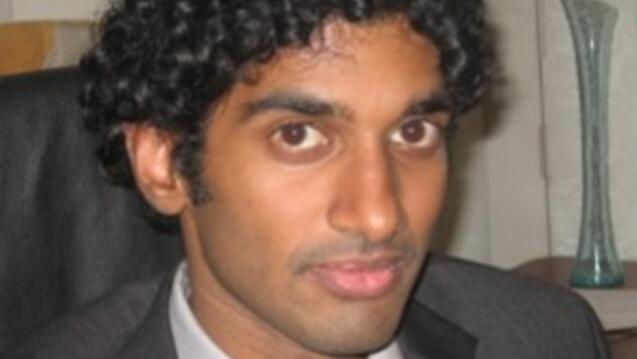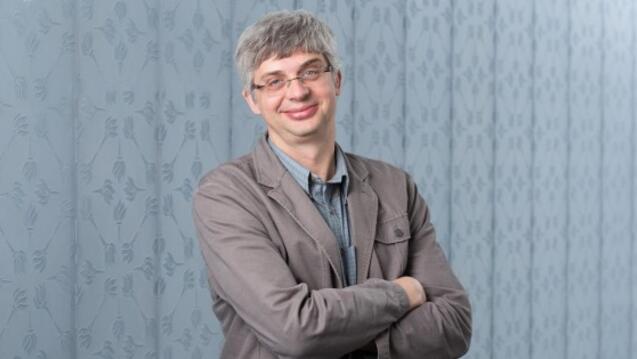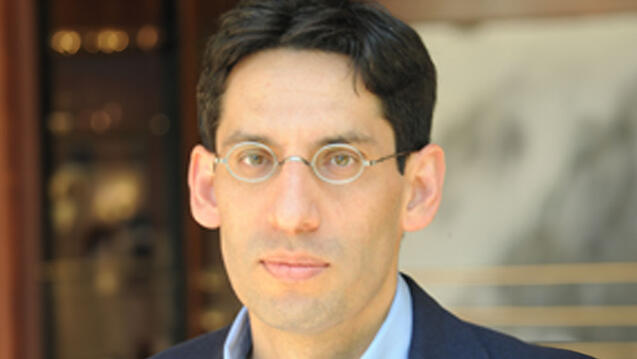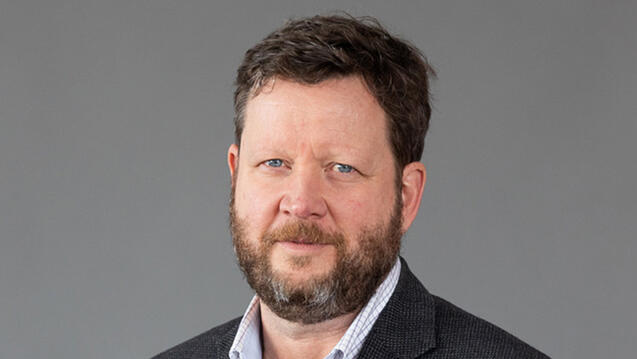
SIPA Dean's Faculty Grants
Projects may be domestic, international, or comparative.
Grants are designed to support projects pursuing basic social science inquiry, policy related research, or innovative teaching initiatives, such as those that include research into public policy issues or other topics related to SIPA courses. The Faculty Grants Committee will give priority to policy-relevant research that is likely to make a substantive contribution to the relevant field. Projects may be domestic, international, or comparative. SIPA encourages collaborative interdisciplinary research proposals; collaborations between early career and mid/later career investigators; and projects that engage SIPA students (or more broadly, Columbia students) in research activity.
Applying
-
SIPA will award up to $100,000 for 2023-24 in grants for faculty research support. These grants are designed to support projects pursuing basic social science inquiry, policy related research, or innovative teaching initiatives, such as those that include research into public policy issues or other topics related to SIPA courses. The Faculty Grants Committee will give priority to policy-relevant research that is likely to make a substantive contribution to the relevant field. Projects may be domestic, international, or comparative. SIPA encourages collaborative interdisciplinary research proposals; collaborations between early career and mid/later career investigators; and projects that engage SIPA students (or more broadly, Columbia students) in research activity.
The maximum award for a Faculty Research Grant is expected to be about $15,000, although the award committee may, if appropriate, make a larger award.
-
Grants will be awarded by the Faculty Grants Committee; the committee’s members are Jan Svejnar (chair), Douglas Almond, and Daniel Corstange.
Funding from the spring award process will be available from July 1, 2023, through June 30, 2024. In special circumstances, the award committee may make the award for a longer period. No funds from any of these grant programs may be used for faculty compensation. After the grant award end date, unused funds will be returned to the Faculty Grant Program; on rare occasions, the Faculty Grants Committee may approve an extension, provided there is compelling justification, and the extension request is submitted no later than the grant application deadline for the subsequent year.
Proposals will be evaluated on the following criteria: intellectual merit and innovation of the proposed project; quality of project organization, including plausibility of timeline. The award committee will give priority to policy-relevant work and research likely to make a substantive contribution to the relevant field, including work that develops new theories, identifies new areas of methodological innovation, or bridges different substantive domains. More applied research that contributes to SIPA’s wider mission, such as the development of case studies, is also eligible. Applicants should indicate the extent to which they envisage a continuation of existing research or a new initiative.
-
Full-time faculty with multi-year or renewable appointments at SIPA are eligible to apply for the faculty grant program. Part-time faculty can help develop and play significant roles in projects, but applications must be submitted by a full-time faculty member. Post-doctoral fellows appointed at SIPA are eligible to apply if the proposed work can be completed within the duration of their post-doctoral appointment.
-
Recipients of an award from the SIPA faculty grant program will be expected to submit the following within 30 days of the conclusion of award period: a brief narrative report on results of the project and copies of any publications, articles or other materials resulting from the project.
-
Full-time faculty with multi-year or renewable appointments at SIPA are eligible to apply for the faculty grant program. Part-time faculty can help develop and play significant roles in projects, but applications must be submitted by a full-time faculty member. Post-doctoral fellows appointed at SIPA are eligible to apply if the proposed work can be completed within the duration of their post-doctoral appointment.
We encourage applicants, particularly those submitting applications for the first time, to speak with a member of the Faculty Grants Committee, Vice Dean Douglas Almond or Senior Associate Dean Hazel May well in advance of the grant deadline for advice on proposal preparation.
Proposal templates are available here:
Allowance for air travel should normally not exceed the cost of round-trip economy airfares.
Completed proposals should be emailed to [email protected] by 5:00 p.m. on April 24, 2023. The results of the competition will be announced in May.

2024-25 Applications open in Spring 2024!
Featuring 2023-2024 Recipients
Tamar Mitts, Assistant Professor of International and Public Affairs
Suresh Naidu, Professor in Economics and International and Public Affairs
Daniel Naujoks, Lecturer in the Discipline of International and Public Affairs
Cristian Pop-Eleches, Professor of International and Public Affairs
Miguel Urquiola, Professor of International and Public Affairs and of Economics
Anya Schiffrin, Senior Lecturer in Discipline of International and Public Affairs
Yumiko Shimabukuro, Lecturer in the Discipline of International and Public Affairs
Eric Verhoogen, Professor of International and Public Affairs and of Economics
Current and Past Faculty Recipients
-
In Algorithms We Trust? Citizen Attitudes Toward the Use of Algorithmic Decision-Making in Public Policy
Tamar Mitts, Assistant Professor of International and Public Affairs
The last few years have seen a significant rise in the use of algorithmic decision-making systems (ADSs) to assist or replace human decision-making in a wide array of contexts. Public authorities, for example, are increasingly relying on such AI-based algorithms – software that autonomously makes decisions without explicit human instruction, relying on data-driven inferences instead – to make determinations on questions such as where to focus policing efforts, which child abuse allegations to investigate, who to qualify for public housing or how to allocate welfare benefits. ADSs are also increasingly shaping market interactions, from bank decisions on loan qualifications to the premiums which insurance companies offer. In this project, we propose to conduct a systematic investigation of public attitudes about the use of AI in policy. Our goal is to characterize the ways in which ordinary citizens view artificial intelligence and its use in the public sector, and identify important factors that shape preferences about the use of AI. As the literature on these questions is still underdeveloped, we plan to use this study to generate both descriptive, baseline knowledge about public opinion regarding artificial intelligence, as well as more specific understanding of the drivers of these attitudes.
Labor Organizing for Quality Care in Nursing Homes
Suresh Naidu, Professor in Economics and International and Public Affairs
The COVID-19 pandemic has exposed in stark terms the critical role that nursing homes continue to play in the care of older people in the United States, and the industry’s failure to protect both those who live in nursing homes and those who work in them. In the early months of the pandemic, nearly fifty percent of COVID-19 deaths occurred in long-term care facilities. A more recent estimate suggests that approximately 200,000 nursing home residents and staff have died of COVID-19 since the pandemic began (Chidambaram, 2022). These staggering numbers are revealing of a situation that was already dire before the pandemic. For example, between 2013 and 2017, 82% of nursing home facilities had been cited as having deficiencies with infection prevention and control (GAO, 2020). The nursing home sector is clearly in turmoil, and new models of caregiving that respect residents’ and workers’ well-being are in demand by policy makers, businesses, and by residents and workers themselves. In this project, we exploit a unique opportunity to randomize ongoing unionization efforts being undertaken by a large healthcare union, SEIU Healthcare Minnesota and Iowa (HCMNIA, hereafter). This novel partnership and the use of gold-standard experimental methodology will allow us to study the impacts of labor organizing in the healthcare sector and provide a rich understanding of the mechanisms driving any impacts on resident care.
Examining the UN's Domestic Activities on Human Mobility in the Global South: Toward a Local Turn of UN Studies
Daniel Naujoks, Lecturer in the Discipline of International and Public Affairs
Scholarship on international organizations (IO) has elucidated many aspects on processes on the diplomatic parquet in New York and Geneva and practices of international bureaucracies globally, but relatively little research has focused on the work of the UN at country level. The proposed research project will advance our understanding of the UN’s work at the national level by expanding the principal investigator’s (PI) Global Development Policy Database that currently contains a total of 473 UN Development Plans. The research grant is sought to fund research to (1) further populate the database; (2) apply automatic and manual codes; (3) create a dataset that is supplemented by statistical data available from other sources; (4) analyze the dataset; (5) conduct semi-structured expert interviews that shed light on the political determinants of processes in select countries; (6) and hold a virtual expert workshop. Through these activities, the project aims to produce several academic publications, a dataset on mobility and UN development plans that can be used by other scholars, and create opportunities for scholarly cooperation advancing the “local turn of UN studies,” as well as key questions with regard to the UN’s role for global migration governance, sustainable development and public policy.
The Effects of High School Majors
Cristian Pop-Eleches, Professor of International and Public Affairs
Miguel Urquiola, Professor of International and Public Affairs and of EconomicsThis project will assess the effects on students of receiving different types of instruction; e.g.,
STEM-oriented instruction vs. humanities oriented during high school. There has been much
interest in this type of question in the U.S. because it is perceived that STEM education is: i) a
vehicle for improving students’ outcomes, and ii) less available to students from less-privileged
backgrounds. The difficulty in tackling the issue arises because students who choose one or another type of instruction tend to be different. Thus, any variation in their outcomes may arise from these pre-existing differences rather than from the type of instruction they received. This project would make progress by exploiting features of Romania’s high school system, which has clearly
differentiated majors and allocates students in a way that makes feasible a regression discontinuity
design.Designing Policies to Support Quality Journalism: Why this Matters for Democracy and How to Preserve Editorial Independence
Anya Schiffrin, Senior Lecturer in Discipline of International and Public Affairs
Quality news and information is essential to the survival of democracy but funding journalism has become increasingly difficult for a range of reasons. As part of our commitment to the Fourth Purpose as well as the Dean’s Democratic resilience pillar, we’ve spent the last few years working with students writing policy briefs and reports and bringing our findings to policy makers and foundations as well as the broader academic community. We’ve established SIPA as a key part of the global community working on policy questions around media sustainability and funding. This summer we hope to finish four papers/reports all of which relate to interventions that can support media viability. We will then publish and present at conferences and publish short pieces in a range of media outlets and subject-related websites. Already-established close links with international organizations, governments, and foundations make it likely that this work will have significant impact.
Rising Above Inequality: Global Lessons from Japanese Women in Leadership
Yumiko Shimabukuro, Lecturer in the Discipline of International and Public Affairs
Rising above Inequality amplifies the voice of Japanese women in leadership positions who have been challenged by particularly acute and sustained gender inequality in the workplace. It explores how they have blossomed into business leaders, distills their lessons for a global audience, and engages with the broader conversations around improving diversity, equity, and inclusivity around the world. The book draws on a wealth of interviews of women business leaders across a wide range of traditionally male-dominated industries. It pairs their concrete narratives and pragmatic advice with statistics, workplace surveys, and academic research to produce a fine-grained yet generalizable understanding of the obstacles at hand and effective ways of overcoming them. Readers will enjoy self-reflective inquiries, visual thinking aids, and self-assessment exercises that are designed to support their own leadership journey. Anyone who belongs to a group that has been traditionally left out of the leadership circle may find Rising above Inequality’s core lessons especially uplifting, useful and actionable.
Quality Standards and Innovative Behavior by Firms in Ethiopia
Eric Verhoogen, Professor of International and Public Affairs and of Economics
This project will examine the extent to which government-issued quality standards can induce firm-level quality and technology upgrading in a low-income country, Ethiopia. The Ethiopian government has issued a large number of quality standards, some compulsory and some merely recommended. We will draw on survey and administrative data to examine the responses of firms to these standards, including a new technology module in a large panel of manufacturing firms, firm-to-firm transations data from value-added tax records, and employer-employee records from the social security system. The rich combination of datasets will allow us to examine the consequences of the quality standards for a number of measures indicative of innovative behavior by Ethiopian firms, including technology use, productivity, wages, turnover, prices, characteristics of buyers and suppliers, and import and export market participation.
-
Electoral Gerrymandering and Representation
Thomas Groll, Senior Lecturer in the Discipline of International and Public Affairs
Sharyn O'Halloran, George Blumenthal Professor of Political Economics and Professor of International and Public AffairsThe last two decades have witnessed unprecedented increases in polarization in national and state legislators accompanied by a fundamental realignment of the American political landscape. These dynamics have manifested themselves in the rising contention over the 2020 redistricting plans, with litigation and legislative impasses throwing electoral politics in disarray. Studies on the relation between congressional redistricting and political outcomes fall broadly into two categories: the analysis of partisan politics and the representation of racial and ethnic minorities. Our research project proposes to extend the study of the representation of minority interests in the United States and how congressional redistricting affects the selection of minority candidates, the legislative support for key minority-supported policies, and the turnout of minority voters in elections. The large number of majority-minority districts created since the 1970s provides a unique opportunity to estimate and evaluate the impact of different districting strategies on representation. This enables to inform state legislatures currently involved in the redistricting process on how actual state maps may differ from optimal state maps that optimize minority representation.
The Effects of Attending a Higher Value Added School
Cristian Pop-Eleches, Professor of International and Public Affairs
Miguel Urquiola, Professor of International and Public Affairs and of EconomicsThis study aims to understand how attending a higher value added school affects student performance, behavior and well-being. We would address this question by leveraging a randomized information intervention that we implemented in previous work (Ainsworth et al. 2020, revise and resubmit at the American Economic Review).
In 2019, we intervened among families whose middle school children were preparing to apply to high school. At randomly selected middle schools, we gave families a ranking of the town’s high schools based on academic value added (which we had calculated using administrative data). After the assignment process was complete, we obtained students’ official school assignments. This allowed us to show that as a result of the information intervention, students in the treatment group ended up enrolling in schools that had higher value added compared to the control group.
Our proposed research plan is to reinterview the same sample of students from the 2019 study in their last year of high school to address the following questions:
1) Does attending a higher value added school affect cognitive and behavioral outcomes?
2) How does it affect intentions to go to college as well as intended majors?
3) What are the mechanisms that mediate such effects?Rebel Governance and Post-conflict State Building: Lessons from Nepal
Rumela Sen, Lecturer in the Discipline of International and Public Affairs
What explains variation in degrees and forms of rebel governance across adjacent districts within a base area? Why does a rebel group focus minimally on taxation and law enforcement in some districts and intervenes maximally into entrenched social norms in other adjacent districts? These questions are important in understanding how wartime rebel institutions influence post-conflict state-building in countries emerging out of civil conflicts. This research presents new data on district-level variation in rebel governance established by the Maoists within their base areas in Western Nepal. Contrary to the dominant understanding that degrees and forms of rebel governance varies by group ideology and organization structure, this research presents evidence that it can vary even across adjacent districts within the base area of the same rebel group. The findings, based primarily on unique interviews and archival data collected during fieldwork in Nepal, also show how the Maoist rebels in Nepal balance needs for legitimacy, efficacy and capacity in formulating their three-staged, seven-step, four-level design of territorial control. Rebel choice of governance tactics, I argue, is ultimately contingent on availability of informal networks, which allow rebels to establish a cultural, moral and ideological hegemony, that they value more than territorial control or public service provision. These parallel acts of norm making that proceed alongside area domination are crucial tactics for creating civilian buy-in without coercion. These findings on rebel governance speak directly to at least two research areas, one on the role of ideas and ideology in explaining rebel behavior and the other on staterebel collusion in grey zones of state-insurgency overlap, both of which inform policy debates on civil conflict and postconflict reconstruction.
Excessively Optimistic Beliefs about Future Demands on an Individual's Time
Jeffrey Shrader, Assistant Professor of International and Public Affairs
Research has shown that procrastination has significant adverse effects on individuals, including lower savings and poorer health. Procrastination is typically modeled as resulting from present bias. We propose two experiments to study an alternative model of procrastination: excessively optimistic beliefs about future demands on an individual's time. The two models can be distinguished by how individuals respond to information on their past choices. We propose two complementary experiments to test the predictions of the models. If the experimental results refute the hypothesis that present bias is the sole source of dynamic inconsistency, this will have important implications for the large literature on present-biased discounting behavior and will have important practical implications. The findings would offer an explanation, for example, for low takeup of commitment and suggest that personalized information on past choices could instead be an important tool for mitigating procrastination.
-
Does Infrasound Disrupt Sleep?
Douglas Almond, Professor of International and Public Affairs and Economics; Osea Giuntella, Assistant Professor of Economics
While wind energy offers great potential for reducing dependence on fossil fuels and their outsized contribution to greenhouse gases, controversy exists as to whether wind turbines impair the health for those living nearby [Schmidt and Klokker, 2014, Zou, 2018]. We propose to test a specific part of a causal mechanism that has been proposed for compromised health: whether variation in infrasound { low frequency noise { disrupts sleep. We would leverage nightly/hourly variation in infrasound (< 20 Hz) as generated by a wind turbine(s) located near a college campus as a natural experiment. Sleep duration and quality can be assessed at a correspondingly high temporal frequency using Fitbit Charge HR activity trackers. Suck trackers are popular with college students and so do not need to be purchased for this project to be feasible. We would collect retrospective sleep data from students living in dormitories at varying distances from wind turbines, as the Fitbit \apps" students have on their phones retain detailed, nightly sleep data for over a year.
Developing or refuting such a biological link will inform the plausibility of recent studies arguing that proximity to wind turbines compromises human health, esp. suicide as argued by Zou [2018], which is \revise and resubmit" at American Economic Journal { Economic Policy. Additionally, should a link between infrasound and sleep be demonstrated, we would extend this analysis to additional sites and propagation distances and consider other health effects, such as on resting heart rate, and eventually academic effects, e.g. exam performance after a night of infrasound-affected sleep.
Incentivizing Auditors to Confront Corruption
Paul Lagunes, Associate Professor of International and Public Affairs
During the past few years, there has been a trend in the political economy literature that tests the extent to which elections fulfill one of democracy’s core attributes—that is, the ability to “kick the rascals out.” This key attribute is one reason people have suggested that democracy, as compared with other regime types, may be especially effective in keeping governments free of corruption. The logic supporting this democratic hope is relatively straightforward. People around the world tend to oppose corruption therefore, as long as elections are freely contested, participation is widespread, and the public enjoys political liberties, voters should be able to hold corrupt politicians accountable with the threat of withdrawing their electoral support. Unfortunately, however, elections seldom deliver a government free of corruption. In the United States, corrupt politicians are not necessarily voted out of office. Similar trends exist in other democracies, including Italy and Japan. What this adds up to is that free and fair elections are not a sufficient condition to lower the levels of corruption. Other mechanisms are needed in order to promote a more honest public administration. In fact, some have argued for relying on the work of anticorruption auditors (e.g., Avis, Ferraz and Finan 2018). These auditors are thought to help ensure that those to whom authority is delegated remain accountable to the public interest.
With SIPA’s support, I plan to spend additional time connecting with the relevant authorities in Brazil. Funding provided by our school will allow me to gather data about audit practices; conduct in-depth interviews of auditors; and build mutual trust with local partners. Among the questions I would like to answer, here are a few: What is the profile of the average auditor? What are the career incentives of auditors? Are auditors ever threatened or penalized for doing their work? Which agencies and government activities do auditors tend to target? What sort of irregularities do audits uncover? What percent of criminal investigations that draw on the evidence unearthed by audits result in conviction? And, of course, what sort of reward or incentive could encourage auditors to confront corruption in a more deliberate manner?
Understanding Union Democracy in the United States
Alexander Hertel-Fernandez, Assistant Professor of International and Public Affairs
Despite their decline, unions remain incredibly important political and economic organizations in American society. Yet political science has in recent years neglected unions as objects of inquiry. In ongoing research, I am examining the politics of the labor movement, especially in the public sector, to understand the implications of recent anti-union laws and judicial decisions as well as how unions are responding to the challenging political climate. One strand of that research involves an ongoing collaboration with the Iowa State Education Association (ISEA) and the National Education Association, the Iowa affiliate of the largest union in the United States representing public school educators. I have worked with the ISEA to field surveys of their members and local union presidents, as well as to deploy field experiments to test strategies for engaging their members in the organization. In particular, I have been studying the question of what the union can do to ensure that their members feel well represented and engaged in the political process. Initial survey-based results point to the importance of local culture, as manifested in new member orientations and communications. With a faculty research grant, I will travel to Iowa this summer to conduct in-depth interviews of matched pairs of local union leaders and members to understand the mechanisms through which orientations and communications contribute to local union culture—and to members’ perceptions of
representation and their willingness to participate in union-led political activities. The research will contribute to our empirical understanding of labor unions at a moment of historic weakness and pressure. It will also speak to theoretical literatures on civic association and political participation in the United States.
Far-right Extremism: Engagement with Hate Speech on Gab
Tamar Mitts, Assistant Professor of International and Public Affairs
Violent extremist groups are increasingly using social media platforms to communicate, disseminate propaganda, and plan violent acts. As a result, social media companies have upped their efforts to take down extremist content and suspend accounts disseminating hate speech. A popular, but largely untested, argument is that suspension causes banned individuals to migrate to smaller, alternative platforms, where the risk of radicalization is higher. There is, however, very little systematic research on the online behavior of extremist sympathizers on the smaller platforms. This project will shed light on these questions by collecting and analyzing rich data from the Gab social network -- an ‘alternative’ platform popular among white nationalists.
Drawing on machine learning methods for analyzing textual and image data, the proposed study will systematically collect historical data from Gab, including user-level and post-level data; analyze content shared on Gab to detect different types of hate speech; and examine how exposure to various types of hateful content affects the online behavior of exposed users. As Gab has already shown to facilitate violent behavior, it is crucial to better understand how exposure to hate speech shapes engagement on this platform.
Expertise vs. Bias in Industrial Policymaking: An Impact Evaluation in Mexico
Eric Verhoogen, Professor of International and Public Affairs and of Economics
This project is evaluating a Mexican matching-grants program targeted at innovative small and medium enterprises and is investigating the benefits and costs of using experts from private industry – who are more knowledgeable than government officials about particular sectors but also potentially more biased toward their own social and business networks – to judge the quality of applications. The Impulso a Emprendimientos de Alto Impacto (High-Impact Entrepreneurship Program (HIEP)) was a US$22 million-per-year Mexican Government program run by the Instituto Nacional del Emprendedor (INADEM, National Institute of the Entrepreneur) to support small and medium-sized enterprises in Mexico. We persuaded INADEM to randomize grants among applicants deemed to be eligible, and also to implement two methods to evaluate applications, in parallel. The first method is the traditional method used by INADEM, in which applications are judged by specialized INADEM evaluators who have a degree in “project evaluation” but little experience in private industry. The second method is to use experts from the private sector, some volunteers and some paid consultants, to evaluate applications. The randomization design will allow us to determine which evaluation process was more effective at identifying high-growth firms and firms that would most benefit from the matching grants. The randomization took place in Nov. 2017 and funds began to be disbursed shortly thereafter. The Mexican government social-policy evaluation unit (acronym CONEVAL) had committed to fund the endline survey in Sept. 2019. But with the recent change in government in Mexico, CONEVAL informed us that it would not fund the endline. We are therefore applying for funding to conduct the endline survey and allow the project to be completed.
Evaluating Ex Ante Counterfactual Predictions Using Post Causal Inference
Cristian Pop-Eleches, Professor of International and Public Affairs
We will derive a formal, decision-based method for comparing the performance of counterfactual treatment regime predictions using the results from randomized experiments. Our approach will allow us to quantify and assess the statistical significance of differential performance for optimal treatment regimes estimated from structural models, extrapolated treatment effects, expert opinion, and other methods. We apply our method to evaluate optimal treatment regimes for conditional cash transfer programs across countries where predictions are generated using data from experimental evaluations in other countries and pre-program data in the country of interest.
-
Improving Research Communication Skills to Overcome Bias
Douglas Almond, Professor of International and Public Affairs and Economics; Osea Giuntella, Assistant Professor of Economics
Women and minorities remain underrepresented in academia in general and in economics in particular. Research suggests that both implicit and explicit biases play a role in maintaining this underrepresentation throughout the pipeline from graduate student to tenured professor. The Sustainable Development PhD program has an unprecedented representation of women, minorities, and students from the developing world. By simply maintaining these ratios from graduate students to assistant professorships, SIPA can contribute to increasing diversity in academia. In this project, we will provide training to students of the Sustainable Development PhD program in four dimensions that are key to the successful development of academic careers and to overcoming biases against underrepresented groups: presentation skills, research communication, salary negotiations, and job market preparedness. Each dimension is addressed by a dedicated workshop, led by experts. Sharpening these skills is essential for levelling the playing field, but also for the successful communication of research findings more generally. The program thus further contributes to maximizing the impact of the policy-relevant interdisciplinary research emerging from the Sustainable Development PhD program.
Unlimited Test Bank for Quantitative Analysis I
Doru Cojuc, Lecturer in the Discipline of International and Public Affairs
One of the greatest challenges teaching a quantitative course at SIPA is the heterogeneity of students’ backgrounds. A considerable fraction of students has rarely been exposed in their previous studies to the analytical rigor demanded by a course such as Quantitative Analysis I. They are hindered in their efforts to catch up with the more prepared students by the limited opportunities for practice the course currently offers. Besides a handful of problems in weekly homework, the students can also practice using the exercises in the textbook. These, however, are often not relevant, with vague solutions and no opportunities for feedback. To address this limitation of the textbook, I developed a few online applications providing students unlimited opportunities to practice certain types of problems. In this application I am requesting funds to extend this nascent unlimited test bank by adding more types of questions, providing more detailed solutions, adding adaptive sequences of exercises, as well as host it online.
Critical Assessment of Rice Self-sufficiency Policies in an Extractives-dependent Economy: The Case of Timor-Leste
Glenn Denning, Professor of Professional Practice in International and Public Affairs
Timor-Leste’s Strategic Development Plan (SDP) for 2011-2030 identifies agriculture as a high potential driver of economic growth and an opportunity to diversify the economy from its high dependence on petroleum. The SDP boldly asserted a national goal to become self-sufficient in rice (the national staple) by 2020. But since 2011, rice self-sufficiency in the country has fallen from 54% to 24%. This faculty research grant will support a critical analysis of national rice policy in Timor-Leste since the country’s independence in 2002. Drawing on seven years of advisory experience in Timor-Leste, I will lead a student team to examine rice policy within the larger contexts of (1) economic development (including economic diversification), (2) overall food security (as distinct from rice self-sufficiency) and (3) land use. We will draw on available national statistics on food production, consumption and imports. We will construct a timeline of policy decisions and budget allocations related to the implementation of the SDP’s agriculture and food policies. The principal outputs of the study will be (1) a research paper for publication in a refereed journal, (2) a revised and updated SIPA teaching case to replace an earlier case on “Grow Your Own? Rice Self-Sufficiency in Timor-Leste”, and (3) a Policy Brief for the Government of Timor-Leste.
Corruption and Oversight: Insights from Field Experiments on Corruption Control in the AmericasPaul Lagunes, Associate Professor of International and Public Affairs
The SIPA Faculty Grant made it possible for me to complete a book manuscript about bureaucratic corruption affecting both local and national governments in the Americas. The project tackles two specific questions: First, how does corruption work in practice? And more importantly, what are some proven strategies for curbing corruption among the unelected officials that populate a public administration? In summary, the formula for corruption control requires increasing the probability of detecting corruption through enhanced monitoring, and then applying the appropriate penalty in response to wrongdoing. However, the typical policy response to corruption often emphasizes only the first of the two mechanisms. Therefore, this book puts forth evidence-based recommendations that should encourage governments to move beyond their emphasis on transparency in their attempt to promote accountability. It analyzes the implementation of Mexico’s Freedom of Information Act and summarizes the results of field experiments on corruption control conducted in the City of Queretaro in Central Mexico, urban and peri-urban districts in Peru, and two of New York City’s boroughs. The book, which is currently being reviewed by Oxford University Press and Cambridge University Press, offers evidence-based recommendations on what works in the fight against corruption.
“Good” Rebel Governance? War-fighting, State-making, and Intervention in Syria
Dipali Mukhopadhyay, Associate Professor of International and Public Affairs
This is a proposal requesting support for the final stages of a collaborative book project on Western intervention and rebel governance in Syria. A book proposal and three draft chapters are currently under review at Cambridge University Press with senior editor, John Berger. My co-author (Dr Kimberly Howe, Tufts University1) and I expect to deliver a full draft manuscript to Cambridge in the fall of 2018.
External Validity of School Choice Effects: Evidence from 350 Markets
Cristian Pop-Eleches, Professor of International and Public Affairs
Miguel Urquiola, Professor of International and Public Affairs and of EconomicsThis paper examines how parents choose secondary schools for their children. We use a randomized intervention that provided information to parents and children about school effectiveness in terms of passing the high school leaving exam just prior to the time when they submit their school choices. The data is based on a sample of 194 schools and 1800 students who were reinterviewed after the admission process was complete. Our results show no notable effects of the information about school value added on school choices. We discuss the implication of these results for the literature on school choice.
Learning from Success: Media Startups and Economic Viability in the Global South
Anya Schiffrin, Lecturer in Discipline of International and Public Affairs
The report examined 26 donor-funded media startups in the Global South to see if they have been able to sustain themselves financially. Many of these institutions were those we already researched in the 2016 paper Publishing for Peanuts which was disseminated widely. Interviewing the outlets featured previously, we discovered three had failed, and six had been seriously changed. We also interviewed five new outlets that we had not been in contact with previously. The interviews lasted an hour each, and we asked editors of the various outlets to describe their business models, their missions, their successes and failures, and how they survive. Some of our key findings include: financial security is the biggest risk for these media outlets, outlets remain dependent on donors, rise of right-wing demagogues have increased support of these outlets but that support does not often equate to financial support, and finally that many of these outlets rely on membership fees and philanthropy to sustain themselves.
Incidence of a Global Carbon Tax
Wolfram Schlenker, Professor of International and Public Affairs
A carbon tax has been widely discussed as a way of reducing fossil fuel use and mitigating climate change, generally in a static framework. Unlike standard goods that can be produced, oil is an exhaustible resource. Parts of its price reflects scarcity rents, i.e., the fact that there is limited availability. We highlight important dynamic aspects of a global carbon tax, which will reallocate consumption through time: some of the initial reduction in consumption will be offset through higher consumption later on. Only reserves with high enough extraction cost will be priced out of the market. Using data from a large proprietary database of field-level oil data, we show that carbon prices even as high as 200 dollars per ton of CO2 will only reduce cumulative emissions from oil by 4% as the supply curve is very steep for high oil prices and few reserves drop out. The supply curve flattens out for lower price, and the effect of an increased carbon tax becomes larger. For example, a carbon price of 600 dollars would reduce cumulative emissions by 60%. On the flip side, a global cap and trade system that limits global extraction by a modest amount like 4% expropriates a large fraction of scarcity rents and would imply a high permit price of $200. The tax incidence varies over time: initially, about 75% of the carbon price will be passed on to consumers, but this share declines through time and even becomes negative as oil prices will drop in future years relative to a case of no carbon tax. The net present value of producer and consumer surplus decrease by roughly equal amounts, which are almost entirely offset by increased tax revenues
For more information
The Office of Academic Affairs typically announces the next academic year's grant cycle in the preceding Spring semester. Questions about the grant process can be directed to the Office of Academic Affairs at [email protected].







